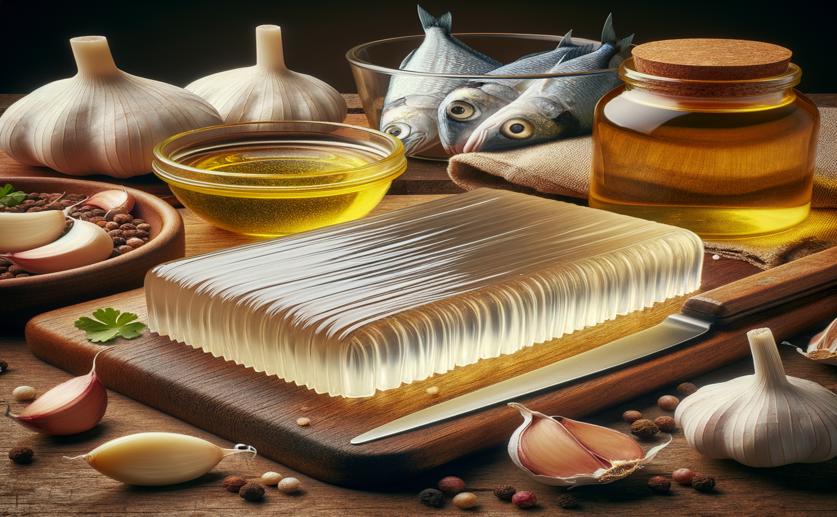
Creating Edible Films from Fish Gelatin and Garlic Oil
Jenn Hoskins
2nd June, 2024

Image Source: Natural Science News, 2024
Key Findings
- The study by the Federal University of Rio Grande (FURG) focused on improving fish gelatin films for packaging by adding garlic essential oil
- Garlic essential oil was found to enhance the barrier properties of the gelatin films, making them less permeable to water vapor
- The optimal film, with the best tensile strength and elongation, was produced using garlic oil extracted at 55°C with a 1:2 cosolvent ratio
References
Main Study
1) Preparation of films based on reticulated fish gelatin containing garlic essential oil.
Published 1st June, 2024
https://doi.org/10.1016/j.foodres.2024.114496
Related Studies
2) Mechanical Properties of Porcine and Fish Skin-Based Collagen and Conjugated Collagen Fibers.
3) Antibacterial Properties of Organosulfur Compounds of Garlic (Allium sativum).
4) Supercritical carbon dioxide extraction of plant phytochemicals for biological and environmental applications - A review.
5) Allicin Inhibits Proliferation and Invasion in Vitro and in Vivo via SHP-1-Mediated STAT3 Signaling in Cholangiocarcinoma.



 17th May, 2024 | Greg Howard
17th May, 2024 | Greg Howard